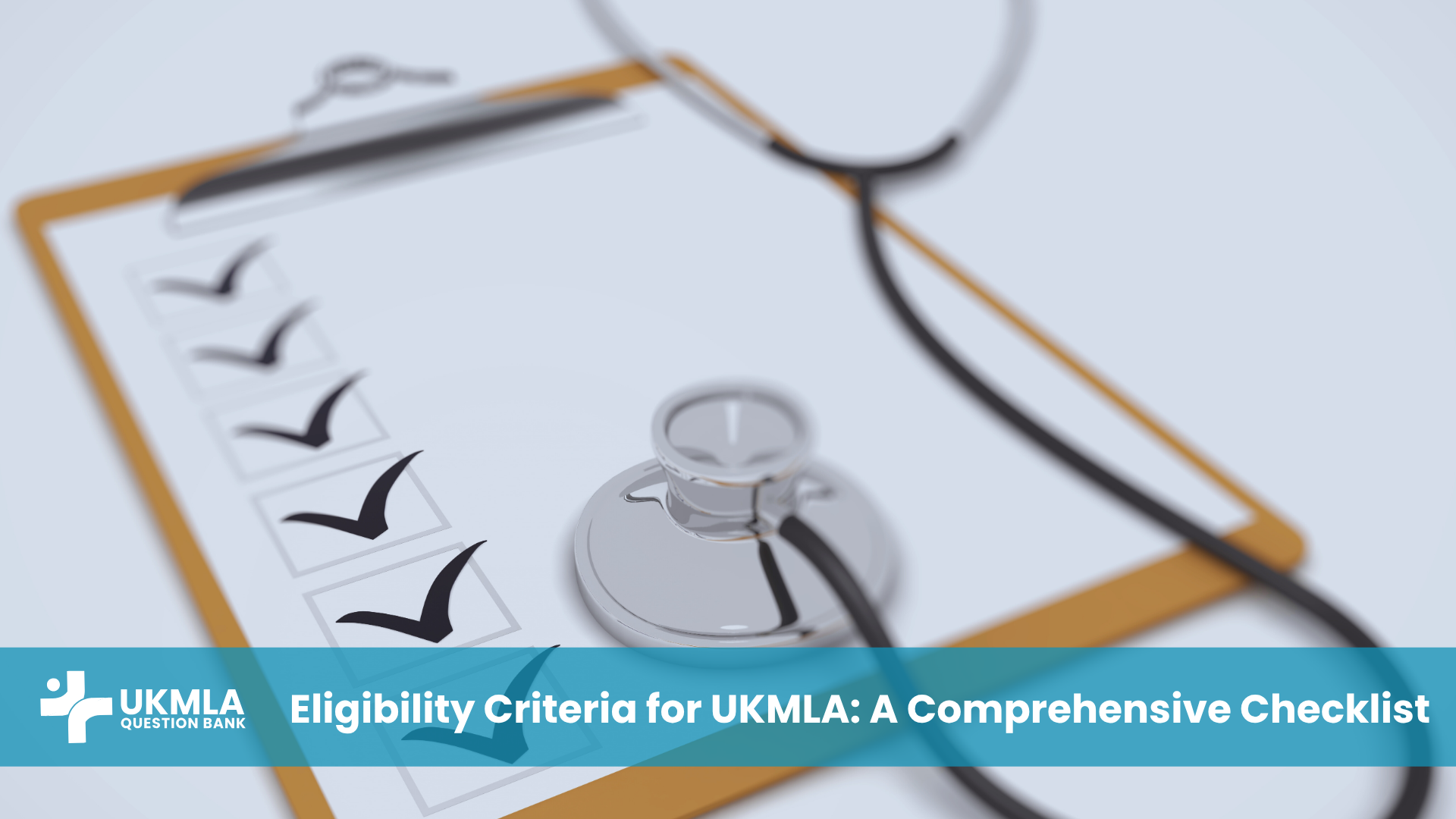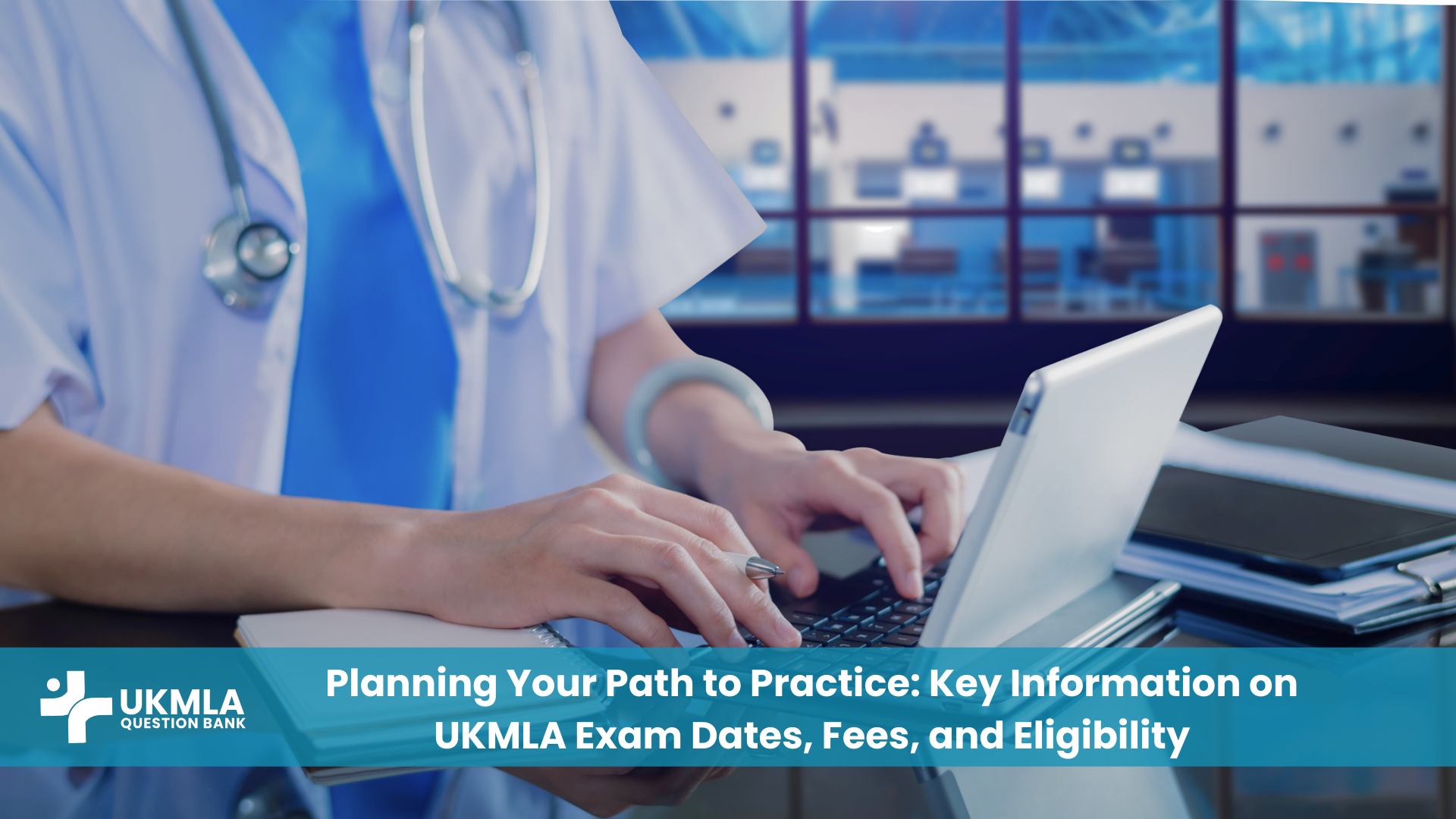The UK Medical Licensing Assessment (UKMLA) is a critical hurdle for any doctor aspiring to practise medicine in the United Kingdom. Whether you are a UK medical student nearing the end of your studies or an International Medical Graduate (IMG) from overseas, understanding and meeting the UKMLA eligibility criteria is the absolute first step in your journey. Without fulfilling these prerequisites, you cannot even sit the exam, let alone progress towards GMC registration.
Navigating the official guidelines can sometimes feel overwhelming, with specific requirements for different groups of applicants. This comprehensive checklist aims to simplify the process, breaking down the essential UKMLA eligibility criteria for both UK graduates and IMGs. Ensuring you tick every box will save you time, potential frustration, and set you on a clear path towards tackling the UKMLA.
Why Understanding UKMLA Eligibility Criteria is Non-Negotiable
Before diving into the specifics, it’s vital to appreciate why these criteria exist. The General Medical Council (GMC) has a primary duty to protect patient safety. The UKMLA eligibility criteria are designed to ensure that only individuals with an appropriate foundational medical education and the necessary language skills are permitted to attempt the assessment that gateways UK medical practice.
Attempting to apply without meeting the criteria will lead to rejection of your application, delays, and potentially wasted application fees. Moreover, for IMGs, some criteria, like having an acceptable primary medical qualification, are fundamental and cannot be bypassed. You might find our previous article, “[Why the UKMLA Was Introduced: Understanding the GMC’s Aims],” helpful in contextualizing the GMC’s objectives.
Core UKMLA Eligibility Criteria: The Universal Requirements
While there are distinctions between UK graduates and IMGs, some foundational aspects of eligibility are broadly similar, revolving around fitness to practise. All applicants are expected to:
Demonstrate Good Character: This involves declarations regarding any criminal convictions, professional misconduct, or health concerns that might impair fitness to practise. The GMC takes this very seriously.
Meet Health Requirements: Applicants must be fit to practise medicine safely. Any health conditions that could pose a risk to patients must be declared and managed appropriately.
These overarching principles underpin the entire GMC registration process, including eligibility for the UKMLA.
UKMLA Eligibility Criteria for UK Medical Students
For students graduating from UK medical schools, the UKMLA is integrated into your degree. The eligibility pathway is generally more streamlined as your medical school plays a key role.
Enrollment in a UK Medical School Programme Leading to a Primary Medical Qualification (PMQ):
You must be enrolled in a programme of study at a UK university that is recognised by the GMC as leading to a UK PMQ.
The UKMLA components (AKT and CPSA) will be part of your medical school’s final examinations or assessments.
Timing within Your Degree:
Your medical school will determine the exact point at which you take the AKT and CPSA components, typically in the penultimate or final year of your course. You are eligible as per your university’s schedule.
Passing these components will be a requirement for graduation with a UK PMQ.
No Separate Application to GMC for the Exam (Initially):
UK students do not typically apply directly to the GMC to sit the UKMLA components as part of their degree; this is managed by the medical school.
Eligibility is intrinsically linked to your progression through your UK medical degree. For more on what your university journey entails, see our upcoming piece, “[UKMLA for UK Medical Students: What Your University Expects]”.
Checklist for UK Medical Students:
[ ] Currently enrolled in a GMC-recognised UK medical degree programme?
[ ] Aware of your medical school’s schedule for AKT and CPSA components?
[ ] Understand that passing UKMLA is integral to your graduation?
[ ] Prepared to meet general fitness to practise requirements (good character, health)?
The process for UK students is designed to be an integrated part of their education, ensuring they meet the national standard upon graduation.
UKMLA Eligibility Criteria for International Medical Graduates (IMGs)
For IMGs, the UKMLA eligibility criteria are more detailed and require direct application and verification with the GMC. This pathway replaces the former PLAB test route.
1. Acceptable Primary Medical Qualification (PMQ)
This is arguably the most critical eligibility criterion for IMGs.
GMC Recognition: Your medical degree must be awarded by an institution that is listed on the World Directory of Medical Schools (WDOMS) and meets specific GMC acceptability criteria.
The GMC has a list of overseas medical qualifications it accepts. You must check if your specific qualification from your specific university is acceptable before you apply. This can be done via the GMC website.
Some qualifications may require individual assessment by the GMC.
Verification: You will need to have your PMQ independently verified by the Educational Commission for Foreign Medical Graduates (ECFMG) through their Electronic Portfolio of International Credentials (EPIC) service. This verification must be completed before the GMC can approve your application to sit the UKMLA.
Graduation Date: You must have graduated and been awarded your PMQ. Medical students in their final year overseas are generally not eligible until they have fully qualified.
2. English Language Proficiency
You must demonstrate that you have the necessary knowledge of English to communicate effectively and safely in a medical environment.
Accepted Tests: The GMC accepts specific English language tests:
IELTS Academic: You must achieve a minimum overall score (typically 7.5) and minimum scores in each of the four components (speaking, listening, reading, writing – usually 7.0).
OET (Medicine version): You must achieve at least a Grade B in each of the four sub-tests (listening, reading, writing, and speaking).
Test Validity: Your English language test results must be current and valid at the point you apply for the exam and also when you apply for GMC registration. Test results are usually valid for two years.
Exemptions: Very limited exemptions exist, for example, if you are a national of a majority English-speaking country and your PMQ was taught and examined entirely in English in that country. These are strictly assessed by the GMC.
3. GMC Online Account
You must create an account on the GMC Online portal. This is where you will manage your application, book exams, and eventually apply for registration.
4. Fitness to Practise Declarations
As with UK graduates, IMGs must make declarations about their good character and health. This includes disclosing any criminal records, disciplinary proceedings from medical regulatory bodies, or health conditions that might affect your ability to practise safely.
5. Passing the Applied Knowledge Test (AKT) Before the CPSA
You must successfully pass the AKT component of the UKMLA before you become eligible to book and sit the Clinical and Professional Skills Assessment (CPSA).
Comprehensive Checklist for IMGs:
[ ] Is your Primary Medical Qualification (PMQ) from a GMC-acceptable overseas institution? (Verify on GMC website/WDOMS and check GMC criteria)
[ ] Have you graduated and been awarded your PMQ?
[ ] Have you had your PMQ verified by ECFMG via EPIC?
[ ] Do you meet the GMC’s English language proficiency requirements?
[ ] Taken IELTS Academic or OET (Medicine)?
[ ] Achieved the required minimum scores in all components and overall?
[ ] Is your test result still valid (typically within 2 years)?
[ ] Have you created a GMC Online account?
[ ] Are you prepared to make full and honest fitness to practise declarations?
[ ] Do you understand you must pass the AKT before attempting the CPSA?
Meeting these UKMLA eligibility criteria is the foundational step for IMGs. For a more detailed walkthrough of the IMG pathway, refer to our guide: “[UKMLA for International Medical Graduates (IMGs): A Step-by-Step Guide]”.
Special Circumstances and Considerations
Doctors with EU Qualifications
The pathway for doctors with relevant European qualifications has seen changes post-Brexit. While some may still benefit from certain recognitions, many will now need to follow a similar path to other IMGs, including potentially taking the UKMLA. It is crucial to check the specific, current GMC guidance for doctors with EU qualifications.
Refugees and Asylum Seekers
The GMC has provisions and support for refugee doctors. While the standards for knowledge and skills remain the same, there may be assistance or specific guidance regarding the documentation or verification processes.
Previous PLAB Attempts
If you have previously attempted PLAB 1 or PLAB 2, these attempts may count towards the maximum number of attempts allowed for the corresponding UKMLA components (AKT and CPSA). If you have a valid PLAB 1 pass, you might be exempt from the UKMLA AKT and can proceed to the CPSA, provided your PLAB 1 pass is still within the GMC’s validity period. Always verify this with the GMC based on your individual circumstances. Our article “[Is UKMLA Different from PLAB? A Comprehensive Look at the Evolution of GMC Registration]” touches upon these transitionary aspects.
Maintaining Eligibility and Next Steps
Once you’ve established your UKMLA eligibility criteria and successfully applied:
Validity of Passes: Passes in UKMLA components (AKT and CPSA) have a validity period. For instance, an AKT pass is typically valid for a set number of years, within which you must pass the CPSA. Similarly, once both are passed, there’s a timeframe to apply for GMC registration.
Changes in Circumstances: If your circumstances change after applying or passing a component (e.g., a health issue, a criminal conviction), you have an obligation to inform the GMC.
Understanding your eligibility is just the start. Effective preparation is key. Once you’ve confirmed you meet all requirements, resources like “[The GMC UKMLA Content Map: Your Blueprint for Success]”
Frequently Asked Questions (FAQs) about UKMLA Eligibility Criteria
You should check the World Directory of Medical Schools (WDOMS) and then cross-reference with the specific acceptability criteria published on the General Medical Council (GMC) website. The GMC website is the definitive source.
Typically, English language test results (IELTS Academic or OET Medicine) are valid for two years. Your results must be valid when you apply for the UKMLA component and also when you eventually apply for GMC registration.
Generally, no. You must have been awarded your Primary Medical Qualification (PMQ) before you are eligible to apply for and sit the UKMLA AKT as an IMG.
There are no specific upper age restrictions for UKMLA eligibility, provided you meet all other criteria, including fitness to practise.
Not automatically. You must declare any criminal record to the GMC. They will assess its relevance to your fitness to practise medicine. Honesty and full disclosure are paramount.
Yes, for IMGs, your Primary Medical Qualification must be successfully verified by ECFMG through their EPIC service before the GMC will allow you to book the UKMLA AKT.
If you studied medicine outside the UK, you are generally considered an International Medical Graduate (IMG) for UKMLA purposes, regardless of your nationality. You would need to meet the IMG eligibility criteria.
If your medical school or specific qualification is not accepted by the GMC, you will likely not be eligible for the UKMLA or GMC registration through this pathway. You would need to explore if there are any alternative routes or if your qualification can be individually assessed, though this is rare.
Work experience alone is usually not sufficient for an exemption. Exemptions are very limited and typically relate to being a national of a majority English-speaking country and having completed your PMQ entirely in English in that country. Always check the GMC’s specific criteria.
Yes, in most cases, you will still need to pass an approved English language test (IELTS Academic or OET Medicine) to the GMC’s required standard. The medium of instruction alone is not usually grounds for an exemption if the qualification was not obtained in a designated majority English-speaking country.
Conclusion: Your Green Light for the UKMLA Journey
Meeting the UKMLA eligibility criteria is the first green light on your road to becoming a licensed doctor in the UK. For UK students, this is largely managed through your university. For IMGs, it requires careful attention to detail, meticulous document preparation, and proactive engagement with the GMC and ECFMG processes.
Use this checklist as a robust guide. Double-check every requirement against the official GMC website, as guidelines can be updated. By ensuring you meet all prerequisites, you lay a solid foundation for a smoother application process and can then focus your energy on what truly matters: preparing thoroughly to excel in the UKMLA and demonstrate your readiness for safe and effective medical practice in the United Kingdom.




